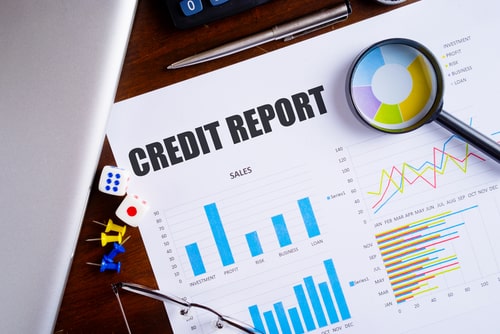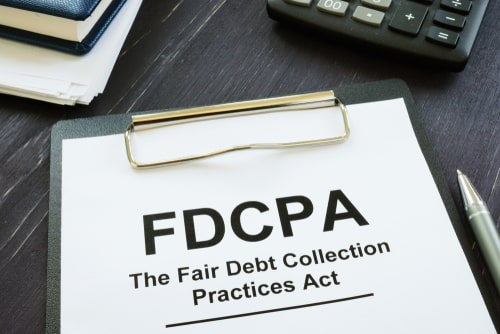 312-704-0771
312-704-0771
Recent Blog Posts
How Can a Lawyer Assist a Bank in the Debt Collection Process?

An often challenging and complex process for banks is the process of debt collection. When borrowers default on their loans, banks may turn to legal professionals to assist in the debt collection process. If you work for a bank and need help with debt collection, a lawyer can play a crucial role in helping you and the financial institution that you work for by providing invaluable assistance in such matters.
Lawyers Know Best
Lawyers handling debt collection possess a deep understanding of the laws and regulations that govern debt collection practices. They can provide banks with valuable legal advice and guidance throughout the entire process. From assessing the debt's validity to determining the best course of action, lawyers can ensure that banks follow legal procedures and adhere to relevant laws, such as the Fair Debt Collection Practices Act.
Tips for Negotiating Payment Plans with Debtors

When it comes to debt collection, negotiating payment plans with debtors is a common challenge faced by people and businesses looking to recover outstanding debts. There are various practical tips that can be implemented to better negotiate payment plans effectively from a legal standpoint. By following these strategies, you can increase the likelihood of reaching mutually beneficial agreements while protecting your rights as a creditor. To get this process started, contact a qualified lawyer in Illinois to ensure all your relevant rights and interests are protected.
Understand the Debtor’s Financial Situation
Before entering into negotiations, gather comprehensive information about the debtors’ financial circumstances. This includes assessing their income, expenses, and assets. Understanding their financial capacity will help you propose a realistic payment plan they can reasonably afford. By demonstrating empathy and considering their financial situation, you increase the chances of reaching an agreeable agreement for both parties.
The Role of Credit Reporting Agencies in Debt Collection
 Credit reporting agencies play a very significant role in the world of debt collection. These agencies collect and maintain credit information on individuals, including their payment history, outstanding debts, and creditworthiness. If you are a debt collector and are looking for legal guidance from someone who understands the role of credit reporting agencies in debt collection, contact an experienced lawyer in Illinois to understand everything you need to know about this process.
Credit reporting agencies play a very significant role in the world of debt collection. These agencies collect and maintain credit information on individuals, including their payment history, outstanding debts, and creditworthiness. If you are a debt collector and are looking for legal guidance from someone who understands the role of credit reporting agencies in debt collection, contact an experienced lawyer in Illinois to understand everything you need to know about this process.
Credit Reporting Agencies and Debt Collection
Also known as credit bureaus, credit reporting agencies gather information from various sources, such as lenders, credit card companies, and collection agencies. They compile this data into credit reports, which are then used by lenders, landlords, and other entities to assess a person’s creditworthiness
Common Challenges Faced by Businesses When Collecting Debts
 Collecting debts is an essential aspect of maintaining a healthy cash flow for businesses. However, it is not always a smooth process, as businesses frequently encounter various challenges along the way. If your business is looking to ensure debts can be collected in a timely and lawful manner, contact a qualified lawyer to make your legal objectives a reality.
Collecting debts is an essential aspect of maintaining a healthy cash flow for businesses. However, it is not always a smooth process, as businesses frequently encounter various challenges along the way. If your business is looking to ensure debts can be collected in a timely and lawful manner, contact a qualified lawyer to make your legal objectives a reality.
Three Challenges Businesses Face When Collecting Debts
- Communicating with debtors - One of the primary challenges in debt collection is establishing effective communication with debtors. Some debtors may avoid or ignore attempts to contact them, making it difficult to reach a resolution. Additionally, inadequate documentation of the debt, such as missing or incomplete records, can hinder the collection process. To address these challenges, businesses should maintain accurate records of all transactions and communication related to the debt. Clear and consistent communication channels, including phone calls, emails, and written correspondence, can also help establish a dialogue with debtors and increase the chances of successful debt recovery.
How to Negotiate with Debtors to Reach a Settlement
 As a creditor, negotiating with debtors to reach a settlement can be a beneficial approach to recovering outstanding debts while avoiding costly legal proceedings. By understanding the legal framework, preparing thoroughly, and employing effective communication strategies, debt collectors can increase their chances of reaching a favorable settlement with their debtors. Before engaging with your debtors, contact an experienced lawyer to assist you in attaining the legal guidance necessary to ensure you can legally collect whatever is owed. Your lawyer will be well-attuned with the laws that protect creditors in Illinois, such as through the Fair Debt Collection Practices Act.
As a creditor, negotiating with debtors to reach a settlement can be a beneficial approach to recovering outstanding debts while avoiding costly legal proceedings. By understanding the legal framework, preparing thoroughly, and employing effective communication strategies, debt collectors can increase their chances of reaching a favorable settlement with their debtors. Before engaging with your debtors, contact an experienced lawyer to assist you in attaining the legal guidance necessary to ensure you can legally collect whatever is owed. Your lawyer will be well-attuned with the laws that protect creditors in Illinois, such as through the Fair Debt Collection Practices Act.
Understanding the Debtor’s Financial Situation
Before initiating negotiations, gathering information about the debtor’s financial situation is crucial. Review relevant documents, such as loan agreements, payment records, and credit reports, to gain insights into their debt repayability. This understanding will help you determine a reasonable settlement offer and establish a foundation for productive negotiations.
Understanding Your Rights as a Creditor in Debt Collection
 Being a creditor in Illinois means having legal rights and protections when it comes to debt collection. Understanding these rights is essential for effectively navigating the process and ensuring fair treatment. If you are a creditor seeking legal guidance, contact a lawyer to assist you in protecting your legal rights. Your attorney will ensure you understand the rights granted to creditors in Illinois and shed light on key aspects of debt collection in the state.
Being a creditor in Illinois means having legal rights and protections when it comes to debt collection. Understanding these rights is essential for effectively navigating the process and ensuring fair treatment. If you are a creditor seeking legal guidance, contact a lawyer to assist you in protecting your legal rights. Your attorney will ensure you understand the rights granted to creditors in Illinois and shed light on key aspects of debt collection in the state.
Illinois Collection Agency Act
This act regulates debt collection practices in the state. It sets out guidelines and requirements for both creditors and debt collectors. Under this act, creditors are entitled to:
-
Right to collect debts – Creditors have the right to collect unpaid debts owed to them. This includes sending letters or contacting debtors to request payment.
Effective Debt Collection Strategies: Tips for Creditors
 Debt collection can be a challenging and time-consuming process for creditors. However, with the right strategies in place, creditors can increase their chances of recovering outstanding debts efficiently and effectively. If you represent a bank, finance company, credit union, auto lender, equipment lender, or truck lender, our debt collection lawyers are ready to help you. As legal professionals, your debt collection attorneys will enable you to explore some essential tips to help you improve your debt collection efforts as a creditor.
Debt collection can be a challenging and time-consuming process for creditors. However, with the right strategies in place, creditors can increase their chances of recovering outstanding debts efficiently and effectively. If you represent a bank, finance company, credit union, auto lender, equipment lender, or truck lender, our debt collection lawyers are ready to help you. As legal professionals, your debt collection attorneys will enable you to explore some essential tips to help you improve your debt collection efforts as a creditor.
Establish Clear Communication Channels
Open and effective communication is key when it comes to debt collection in Illinois. Ensure that you have multiple communication channels available, such as phone or email. Clearly state your preferred methods of contact and make it easy for debtors to reach you. Promptly respond to all inquiries and be proactive in keeping debtors informed about their outstanding debts.
What a Bank Collection Attorney Can Do for You
 When it comes to recovering debt, banks often turn to collection attorneys for their knowledge and guidance. These legal professionals are equipped to navigate the complex world of debt collection, ensuring banks can recover outstanding loans efficiently. Whether you are representing a bank or some other form of lending institution, lawyers are ready to assist you in pursuing your legal goals.
When it comes to recovering debt, banks often turn to collection attorneys for their knowledge and guidance. These legal professionals are equipped to navigate the complex world of debt collection, ensuring banks can recover outstanding loans efficiently. Whether you are representing a bank or some other form of lending institution, lawyers are ready to assist you in pursuing your legal goals.
Experienced in Law
Bank collection attorneys possess a deep understanding of the legal framework surrounding Illinois debt collection. They are well-versed in the intricacies of relevant laws, regulations, and procedures, enabling them to provide accurate advice and representation. If you are a bank or financial institution seeking to recover funds, a collection attorney can guide you through the process, ensuring compliance and maximizing your chances of success.
Common Mistakes Creditors Make When Collecting Debts
 When it comes to debt collection, creditors may face a number of challenges. Recovering debts can be a complex and time-consuming process, requiring careful navigation of legal guidelines and effective communication with debtors. However, many creditors make mistakes that can hinder their chances of successful debt recovery. By understanding these pitfalls, creditors can improve their chances of collecting outstanding debts. A skilled debt collection attorney can provide guidance in these matters, ensuring that creditors comply with all legal requirements.
When it comes to debt collection, creditors may face a number of challenges. Recovering debts can be a complex and time-consuming process, requiring careful navigation of legal guidelines and effective communication with debtors. However, many creditors make mistakes that can hinder their chances of successful debt recovery. By understanding these pitfalls, creditors can improve their chances of collecting outstanding debts. A skilled debt collection attorney can provide guidance in these matters, ensuring that creditors comply with all legal requirements.
Failing to Send Written Notice
One major mistake creditors often commit is neglecting to send a written notice to the debtor regarding overdue payments or unpaid balances. According to the Fair Debt Collection Practices Act (FDCPA), it is mandatory for lenders or collectors to provide written notice within five days after initial contact with the debtor.
How Can Mediation Help Creditors Resolve Debt Collection Disputes?
 Creditors often face challenges when it comes to collecting outstanding debts. As a creditor, you may have experienced difficulties when trying to recover money owed to you from borrowers who default on their payment obligations. When traditional methods such as debt collection agencies or legal action prove ineffective or costly, mediation can provide an alternative approach to resolving debt collection disputes.
Creditors often face challenges when it comes to collecting outstanding debts. As a creditor, you may have experienced difficulties when trying to recover money owed to you from borrowers who default on their payment obligations. When traditional methods such as debt collection agencies or legal action prove ineffective or costly, mediation can provide an alternative approach to resolving debt collection disputes.
The Benefits of Using Mediation to Address Debt-Related Issues
Mediation offers several advantages for creditors when it comes to resolving debt collection disputes, including:
-
Cost-effectiveness: Mediating a dispute is often less costly than pursuing litigation through the courts. By reducing legal fees and associated expenses, creditors can make the process of recovering debts more efficient.






